Turning Training
into Action
Miller School Students Describe Their Fight Against COVID-19
By A.U. Amanda Nwaba, second-year M.D./M.P.H. student
Photographs by Tom Salyer
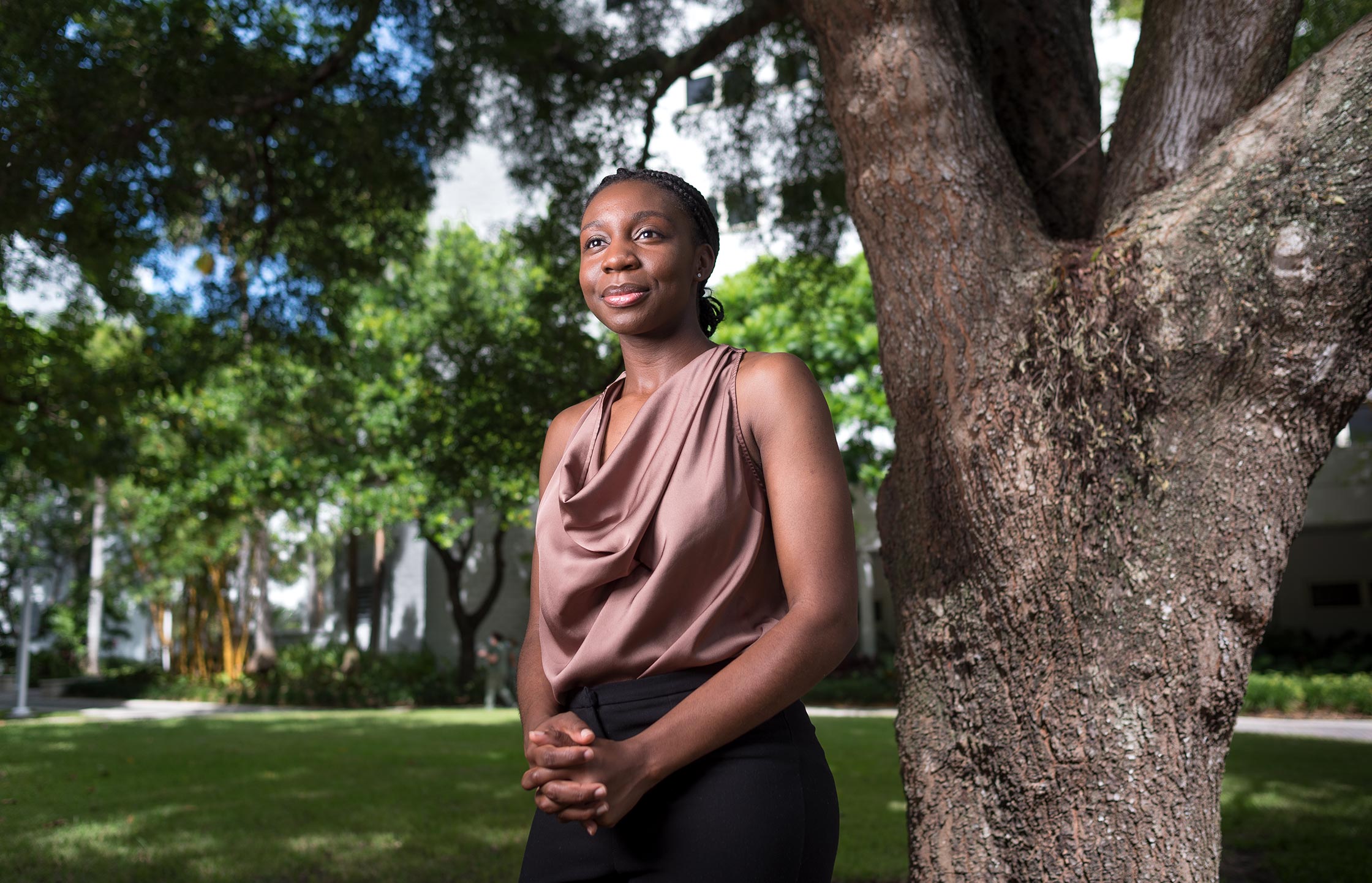
G
rowing up in Maryland with a mother and several aunts who worked in various medical fields, I was fascinated by the medical knowledge they showed whenever someone we knew was sick. From a young age, I knew I would one day study medicine. Participating in medical missions in my family’s home in Imo State, Nigeria, instilled in me that as a physician, I would have a responsibility not only to my patients but also to the larger community. Those in my life modeled how physicians have an obligation to try to leave the world a better place than they found it, and I hope to build on that legacy.
After graduating from Vanderbilt University with a double major in medicine, health and society, and classics — with a minor in chemistry — I spent a year at the FDA and then was drawn to study at the Miller School. I was attracted by both the diversity and opportunity in South Florida, as well as the Miller School’s commitment to public service. Now that I’m in my second year, my background in studying classics and writing for my undergraduate newspaper have woven their way into my role as Student Government executive historian.
When the coronavirus hit South Florida, and my fellow medical students and I were drawn to the fight against COVID-19 in many meaningful ways, I began reaching out to others for their stories. The response was overwhelming. The profiles below are just a sampling of their initiatives, many of which are ongoing. I’m inspired by what these students and so many others are continuing to do for patients, health care workers, and each other, and it was a pleasure to shed light on their incredible work.
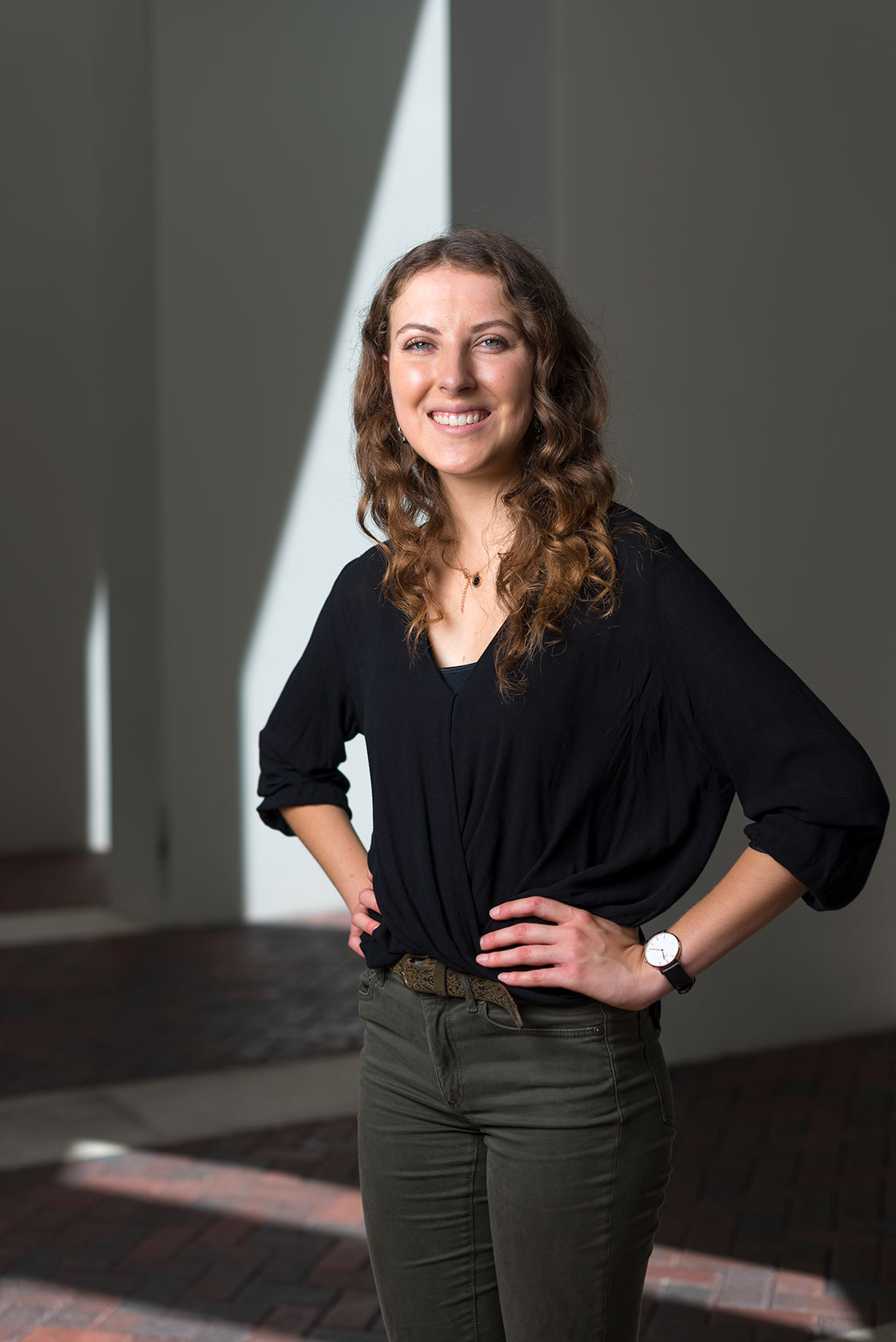
Christina Barkas
Second-year M.D. student
Barkas turned to her interest in medical storytelling and podcasts to create Miami Med Speaks, a project open to health professionals and health students at the University of Miami.
“Originally, I was planning to have a live storytelling event in Miami as part of my project with the Ethics and Medical Humanities Pathway,” Barkas said. “But, like all things this year, plans change. I thought maybe we could change it to a virtual format where people could submit video stories explaining a meaningful moment during the pandemic.
“The result was that we get to see people at their most vulnerable, and we witness all aspects of life — birth, disease, death, and all the intimate parts of people’s lives. And it’s really easy to get lost in the fast pace of it all.”
People also were provided a creative outlet for reflection and a platform that humanized health care providers as they shared experiences and emotions.
“Storytelling can also demystify medicine and the art of healing,” Barkas said. “When I start talking to people about the stories they want to share or watch their videos, it’s inspiring to hear how people have taken this time to develop a new project or try and solve a problem and their emotional journey through that.”
Alessandra Della Porta
Third-year M.D. student
Della Porta volunteered at the Poison Control Center’s COVID Hotline and published a review of the toxicity of chloroquine and hydroxychloroquine to help patients who may overdose on either drug while attempting to fight COVID-19.
Using public data, Della Porta and a toxicologist at the Poison Control Center discovered there was an increase in calls related to overdoses and general questions about hydroxychloroquine and chloroquine.
Della Porta and fellow Miller School students Kasha Bornstein and Austin Coye explored the available literature about COVID-19. They discovered no substantial paper about how to treat those overdoses had been published recently.
“We wanted to write a paper that talks about what an overdose looks like and how to treat it,” Della Porta said. “There have been so many medical advancements, such as putting people on ECMO and doing lipid emulsion therapy.”
The paper was published in The American Journal of Emergency Medicine. It outlines a treatment algorithm that Della Porta stated could provide recommendations for doctors regarding treating patients suffering from overdoses of hydroxychloroquine or chloroquine. And it will hopefully benefit patients in the future.
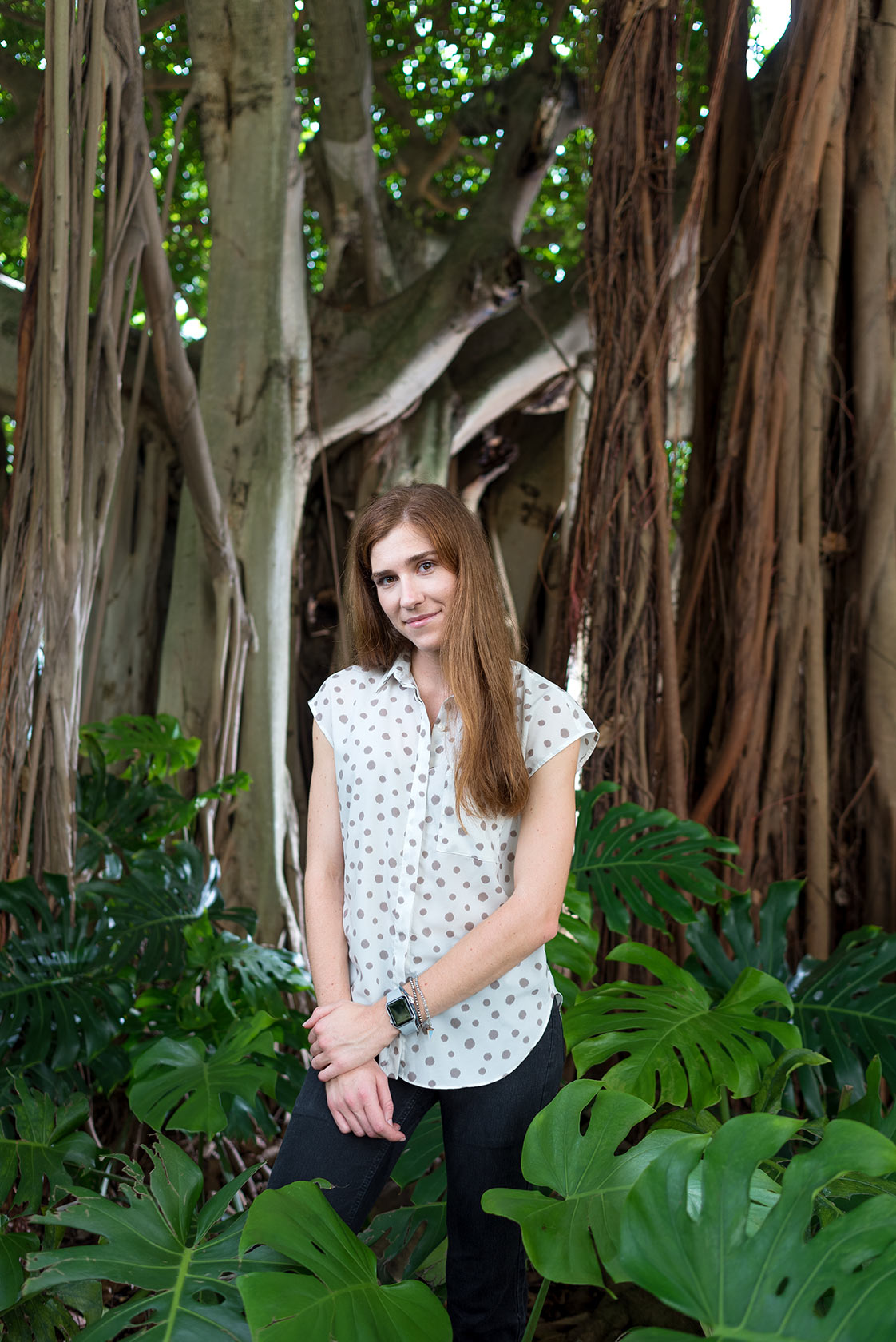
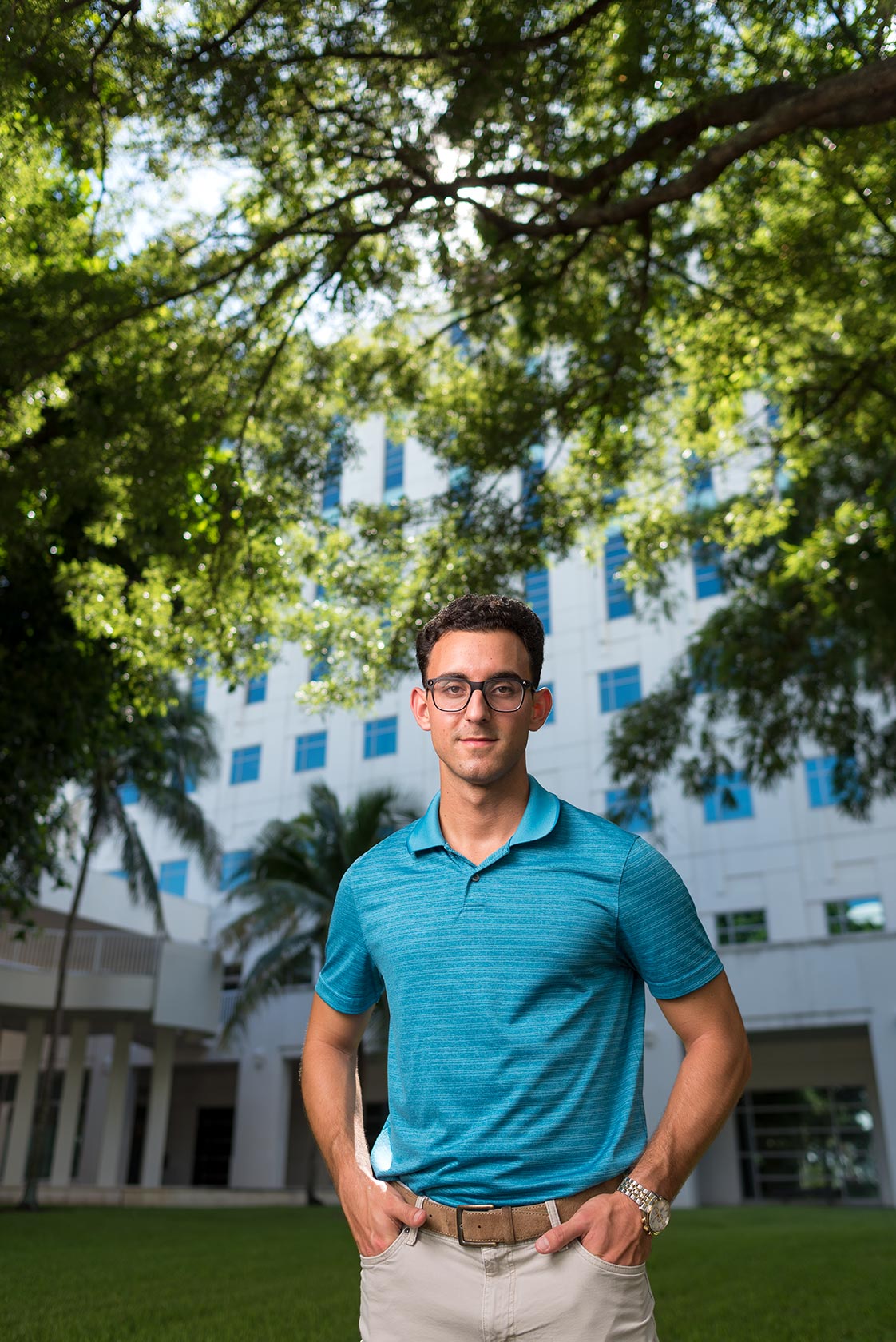
Juan M. Diaz Hernandez
First-year M.D. student
Diaz Hernandez worked for Lee County Emergency Medical Services as an EMT intern from April to July. He and other EMTs had to undergo changing protocols in response to COVID-19. He also witnessed how the pandemic was impacting health care workers.
“At the emergency departments, I would interact with nurses who were blatantly stressed and overextended in their jobs. Hospitals would be on internal disaster status (taking only critical patients) or with very prolonged patient offload times,” he said. “The whole health care system seemed to be struggling.”
Diaz Hernandez said his experience only made him more committed to becoming a physician, especially as he prepares to start his medical education at the Miller School.
“Not even a pandemic discouraged me in the slightest from using my skills to help those in medical need,” he said.
Irene Goo
Second-year M.D./M.P.H. student
When quarantine and other restrictions prevented students from taking part in their usual community work, Goo connected with the organization ContraCOVID through Instagram. This allowed her to contribute to community efforts and assist community programs in gaining a wider audience through advertisements across platforms.
Goo worked with fellow second-year students Danny Castaneda, Erin Dandes, and Nick Lee to develop a series of community resource guides. They compiled information about social assistance programs, COVID-19, health care, and unemployment and distributed these guides to Spanish- and Creole-speaking communities in Miami. The guides provided other information about bill deferrals, financial assistance, and food resources — one of the most significant issues people are experiencing during the pandemic. Goo and her team collaborated with community partners, including churches and local organizations, to ensure accessibility and a wider audience for available outreach efforts.
“We saw that a lot of the community had already banded together and started their own initiatives, but it was hard to know what was going on,” Goo said. “We came up with this idea of community resource guides in English, Spanish, and Creole that compiled things that already existed in your community that you could take advantage of, and then added some national-level resources and information. Our work was geared toward providing social and financial assistance to immigrant families by compiling it into one place because there was a lot of information overload when COVID started.”
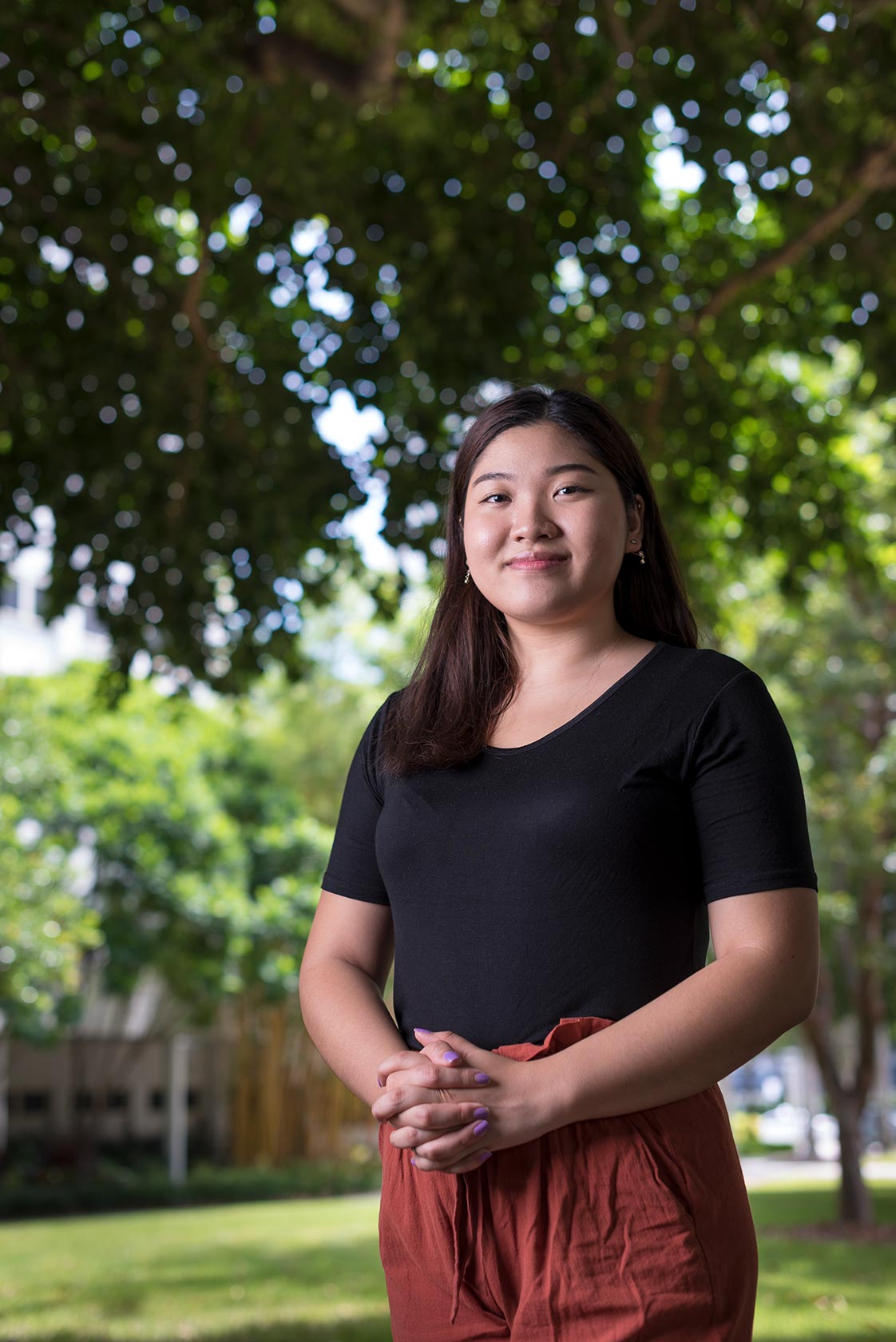
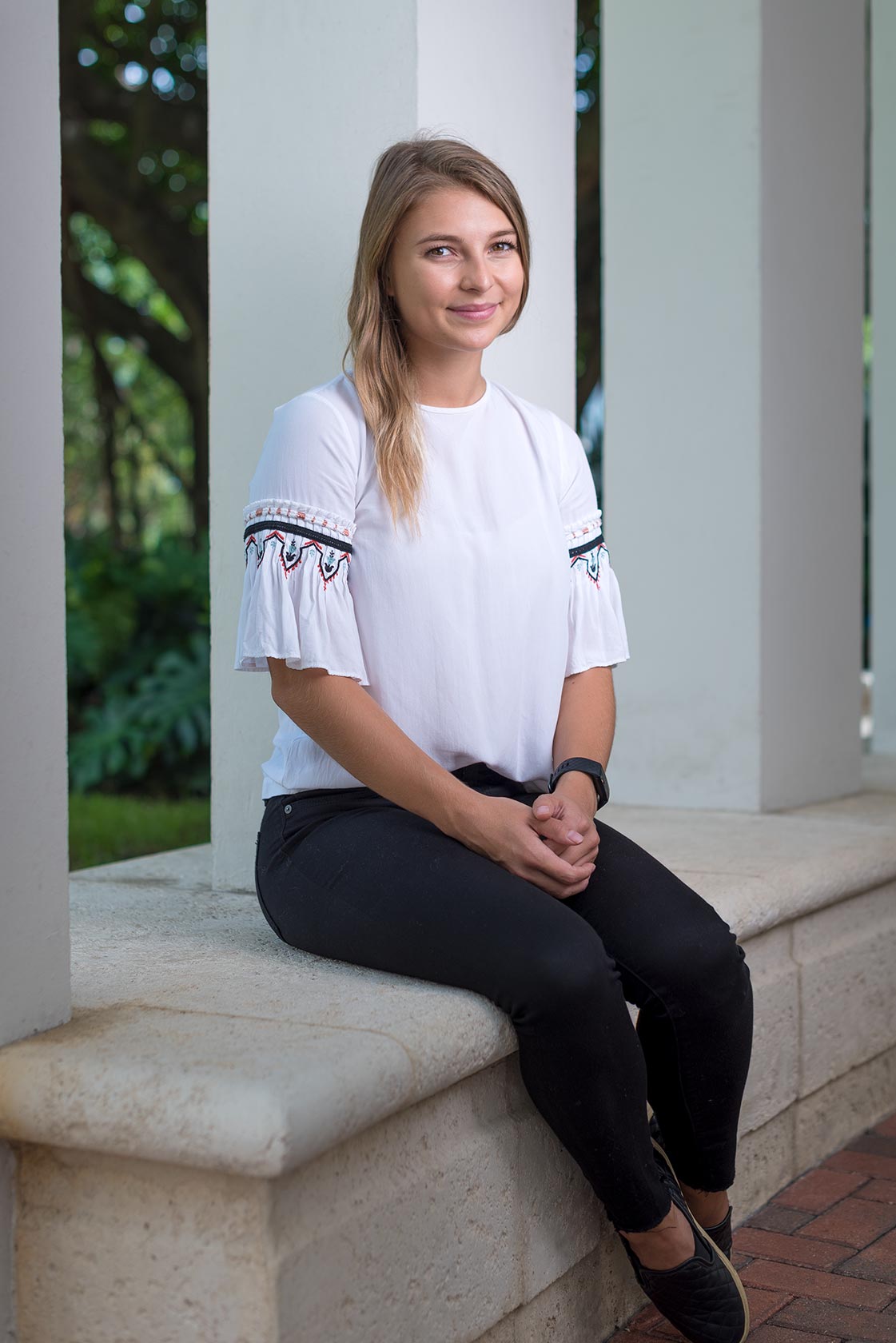
Haley Hullfish
Second-year M.D. student
Hullfish coordinated care package donations under Miami Med COVID Help. After collecting donations from vendors and community members, she and other students packaged the items — including baked goods, snacks, CBD oil, skincare products, face-mask clips, and homemade face masks — and distributed nearly 400 care packages and 200 dental care product packages to Jackson Memorial and Holy Cross hospitals.
The face masks were also donated to Buddy System, an organization that delivers food to elderly and low-income people in Miami.
“I thought they could give out cloth masks because they see a lot of people and have a lot of volunteers,” Hullfish said. “So, I donated 600 of those to them, and I’ve seen people wearing them on their Instagram story, which is nice.”
Hullfish has appreciated the overwhelming support from the Miami community. “It’s been great to see how everyone in the community has been helping,” she said. “All the bakers and shops that have been helping have been awesome, so I really appreciated that.”
Allison Kumnick
M.D./M.P.H. student
This spring, while studying for exams, Kumnick was also recording podcasts for Regional Medical Campus (RMC) students preparing to begin their third-year rotations. She listens to podcasts often and used the format because of the long commutes to some rotation sites for RMC students.
Kumnick — who is in a research year in Washington, D.C., before she begins her fourth year of medical school — aimed to provide future students with information to help them prepare for rotations, and encourage them to prioritize their well-being and take time to reflect during challenging times.
“We talked about the first time a patient dies, which is a hard thing during your third year,” Kumnick said. “One of my friends and I were in the same patient group, and one of our patients died early — like in our first four weeks of third year. So, we talked a little bit about that and how to reflect.”
The podcast episodes also have information that’s especially helpful for students in RMC rotations and not generally found in orientation guides, such as what students should keep in their pockets during the day and what a typical day might look like. The series consists of an hour-long podcast, in which Kumnick discusses wellness, and six, 10- to 15-minute episodes that offer advice from her classmates on rotations for specific specialties.
“It was fun interviewing people because I hadn’t seen my friends in two months,” she said. “And every time I finished an interview, we ended up talking for 30 minutes because everyone was socially deprived.”
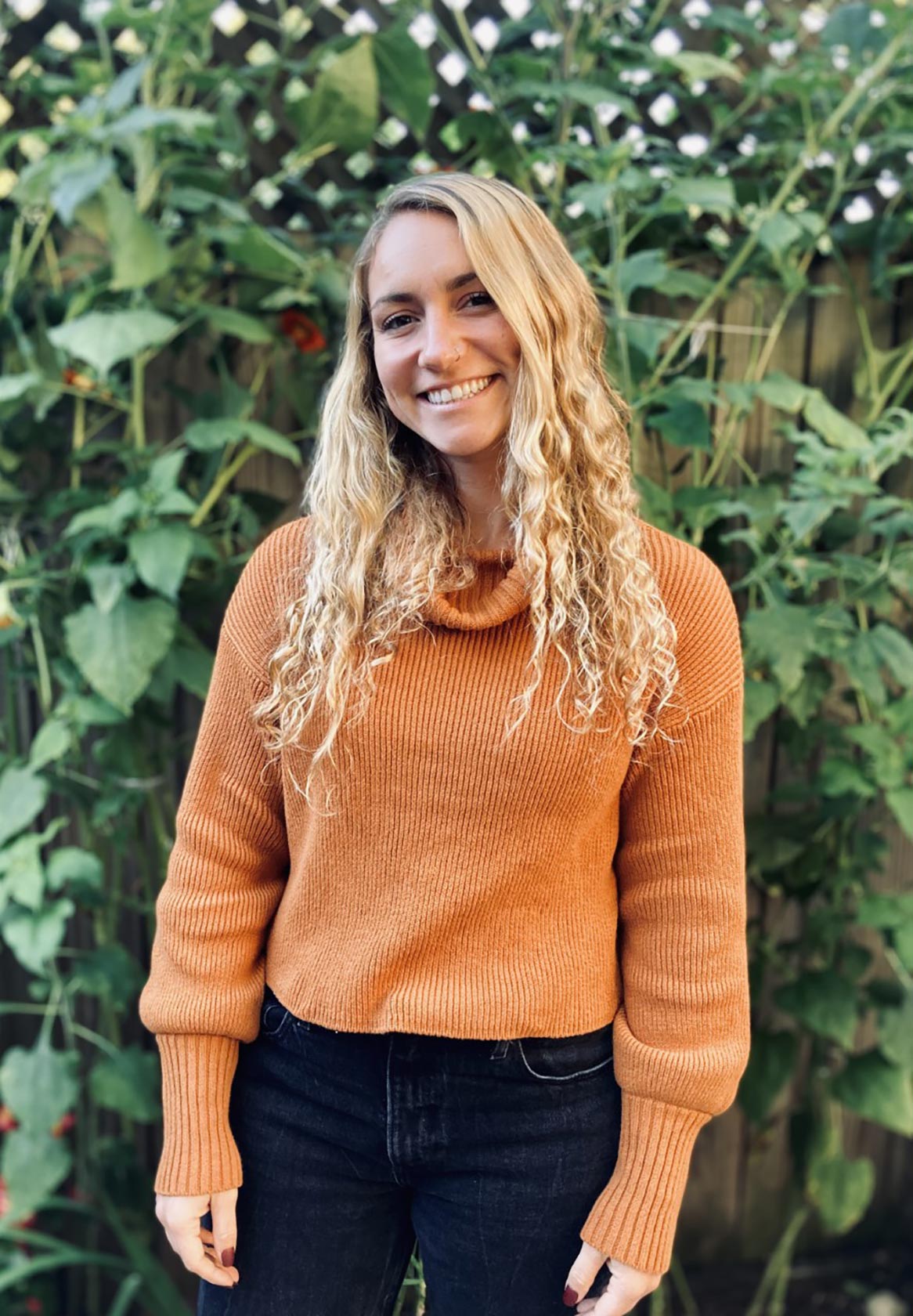
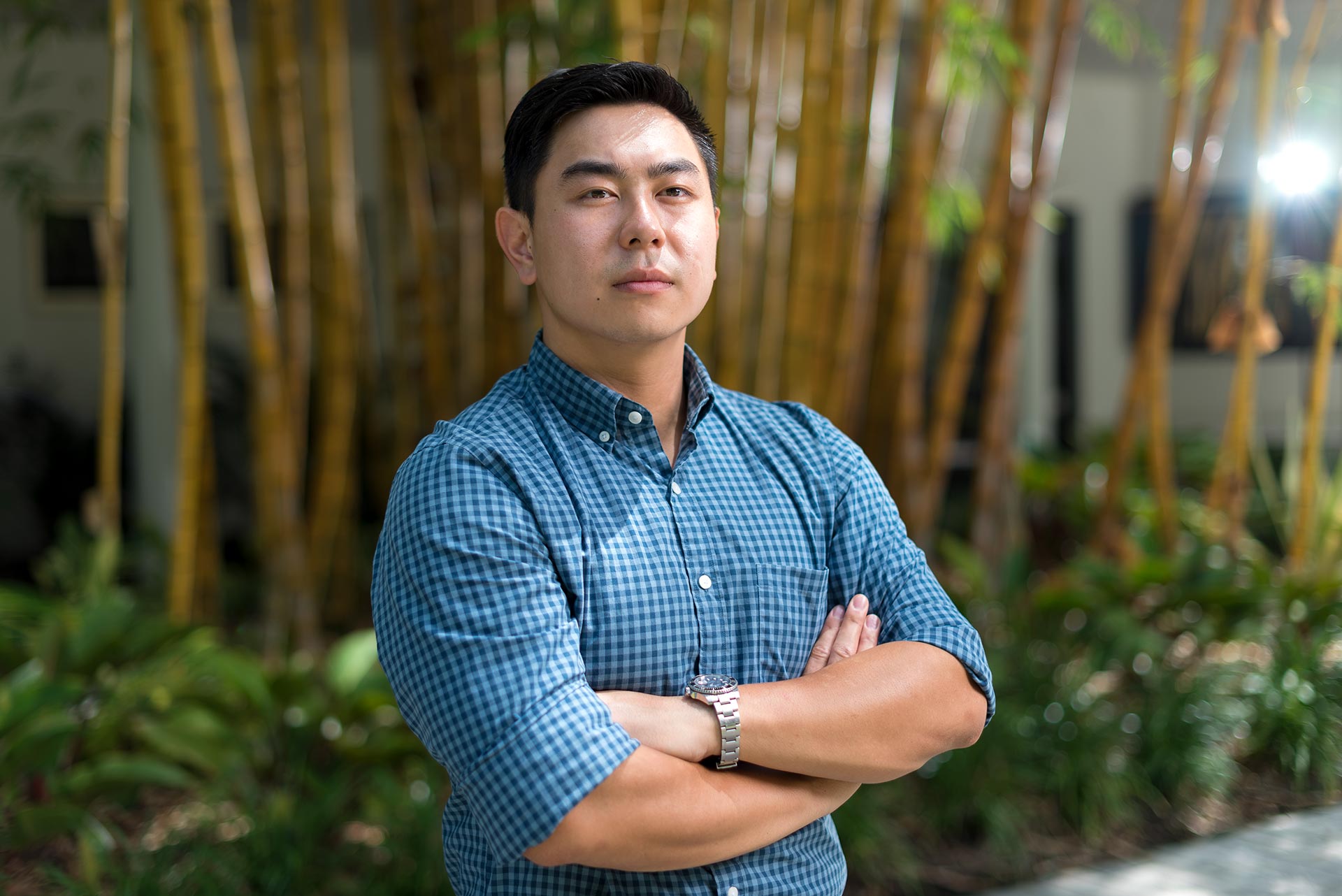
Seiya Liu
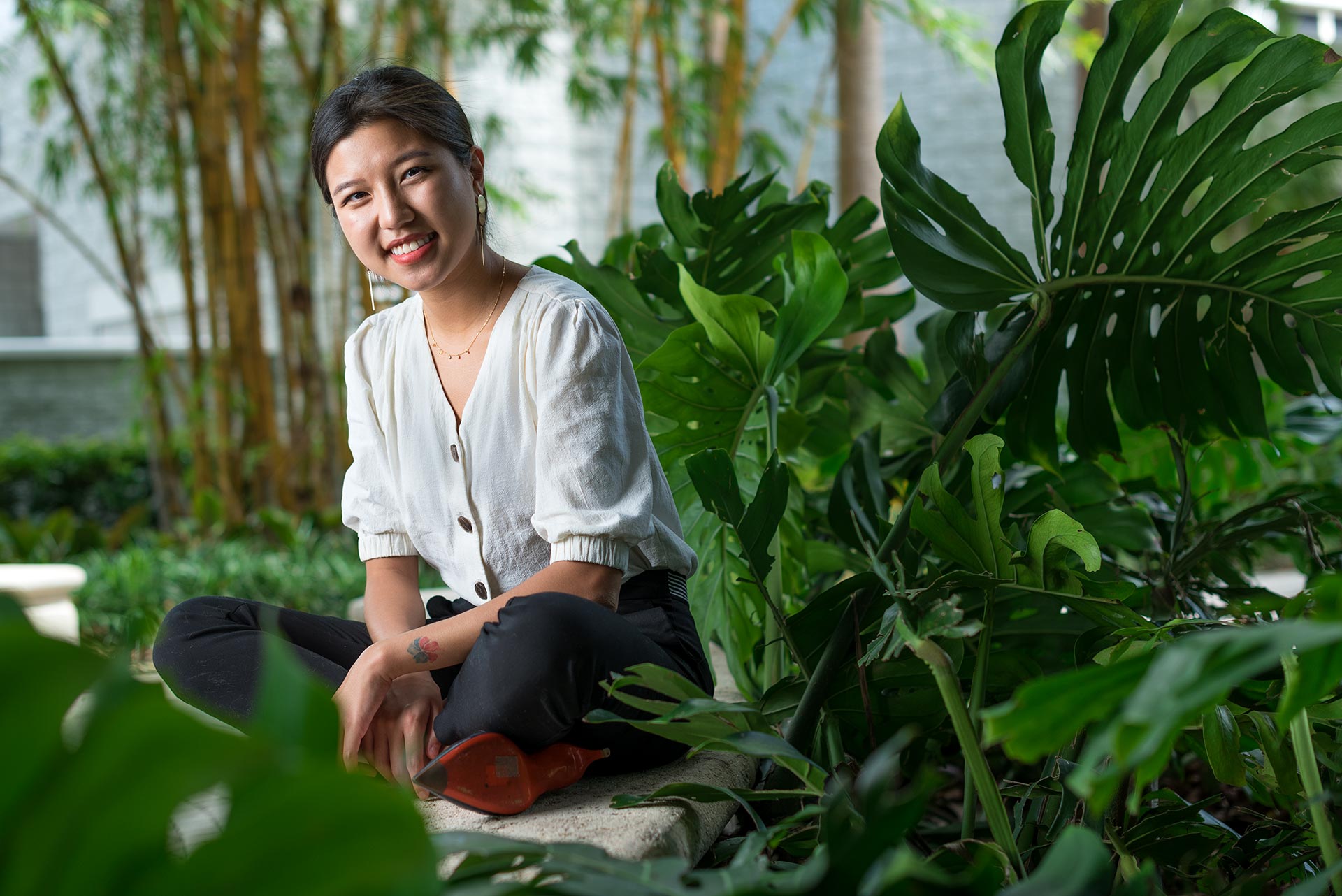
Minji Kim
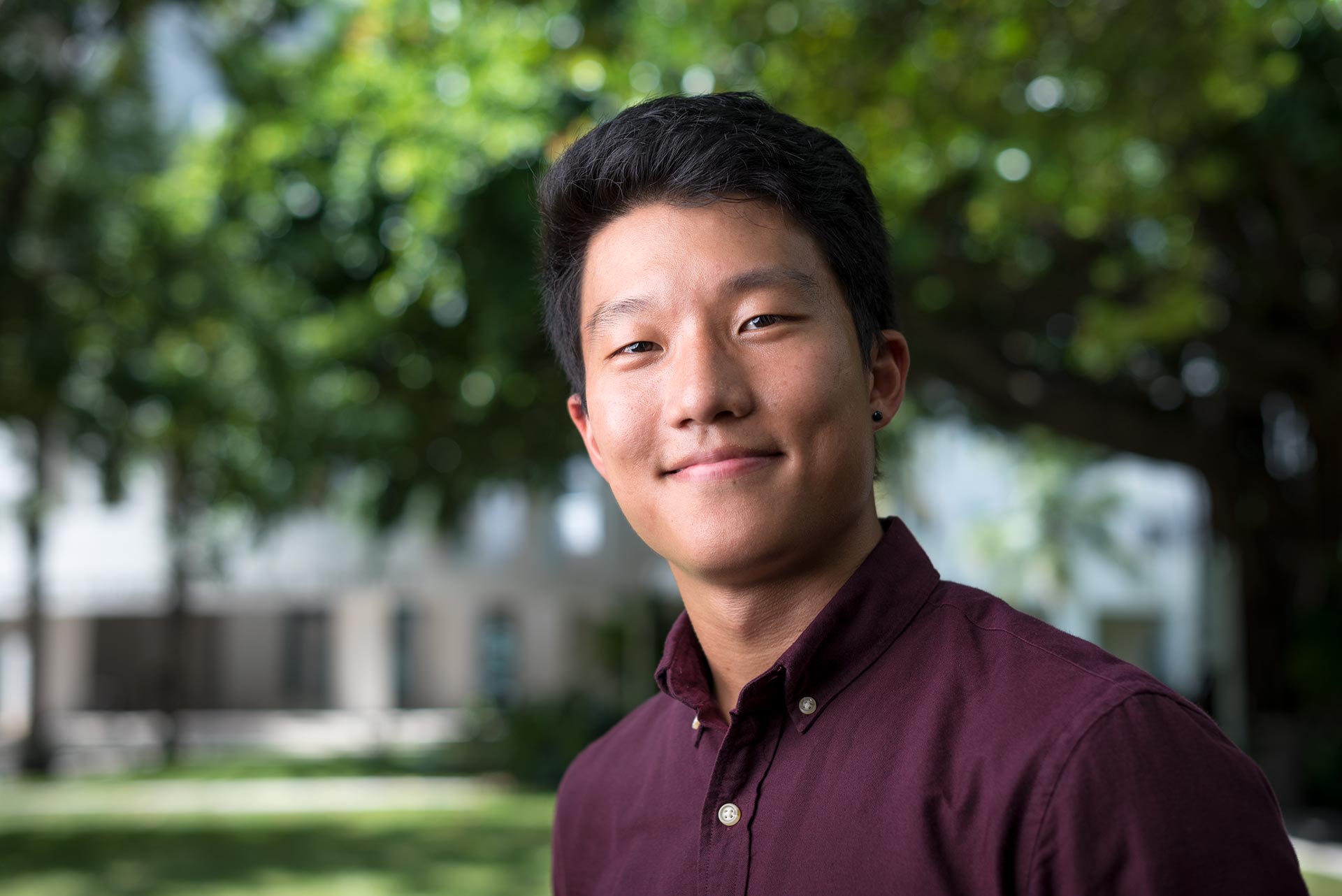
Nick Lee
Seiya Liu, Minji Kim, and Nick Lee
Second-year students
Liu, Kim, and Lee conducted research studies examining the effects of anti-Asian rhetoric and discrimination on Asian American communities in Florida. The project came from stories M.D. student Liu had heard from family members in California about the discrimination they faced when COVID-19 cases began to increase in the U.S.
“I wanted to look at the experience of Asian Americans and the Asian people here, and how that might have changed with COVID,” Liu said.
“My parents were experiencing racism,” added M.D./M.P.H. student Kim. “People were rolling their windows down and yelling at my dad.”
They created a survey for Asian Americans in Florida that focused on demographics, discrimination, and health care.
“The three of us spent a good month just calling Asian community members throughout Florida in our broken Korean and broken Mandarin, asking everyone to distribute our surveys,” Kim said.
They also went to churches and grocery stores to distribute the surveys. They received 258 responses — about 200 of the respondents were Asian Americans.
“Our studies found that Asians are significantly more likely to experience discrimination during COVID than non-Asians,” Kim said. “We also looked into anticipation of discrimination after the pandemic.”
Kim, Liu, and M.D. student Lee hope to collaborate with researchers in California to compare data and broaden the scope of their work.
Henry Olano
M.P.H. ’15, second-year M.D. student
When his medical mission to Nicaragua was canceled, Olano began to work with Connect for COVID-19 to help patients with the disease stay digitally connected to their loved ones. He transitioned out of that role when he started a summer internship with former University of Miami President and current U.S. Rep. Donna E. Shalala. He listened in on hearings related to COVID-19, provided recommendations, and kept the congresswoman’s office up to date on the hearings he attended. He was also able to gain a deeper perspective of the dynamics in Congress.
“It was eye-opening,” Olano said. “I think I was a lot more idealistic before I went to Congress to intern. Coming back, I realize there’s definitely a huge divide between the aisles on what people will listen to — even about things like health care, which shouldn’t be a political issue.”
With all that he learned through this experience, Olano stressed the importance of civic engagement, especially from people in health care.
“It helped me understand that what Congress needs is people who have these experiences to speak up,” he said.
Olano is proud his project is now being led by second-year M.D. student Lizeth Caldera, M.S., and other Miller School students.
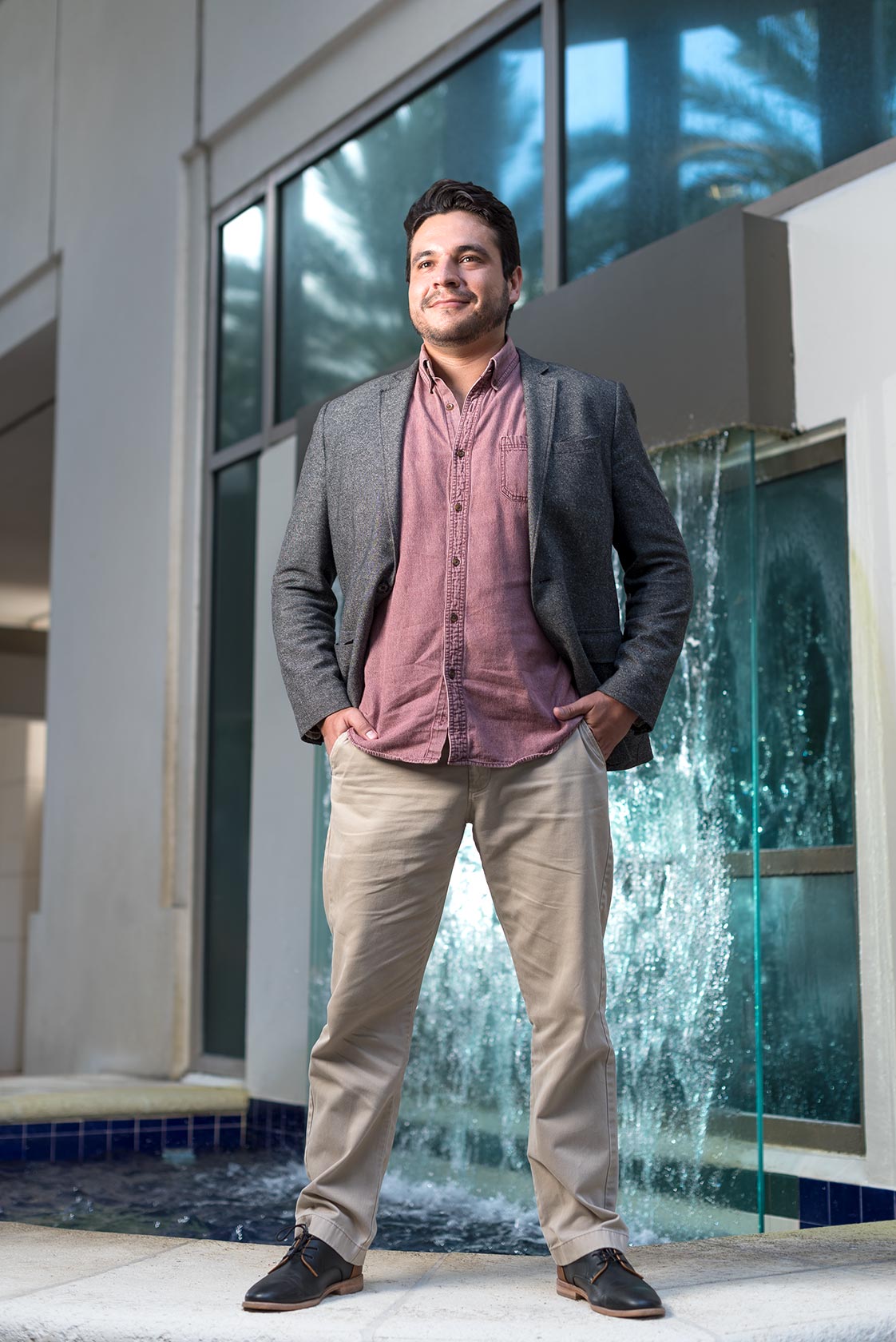
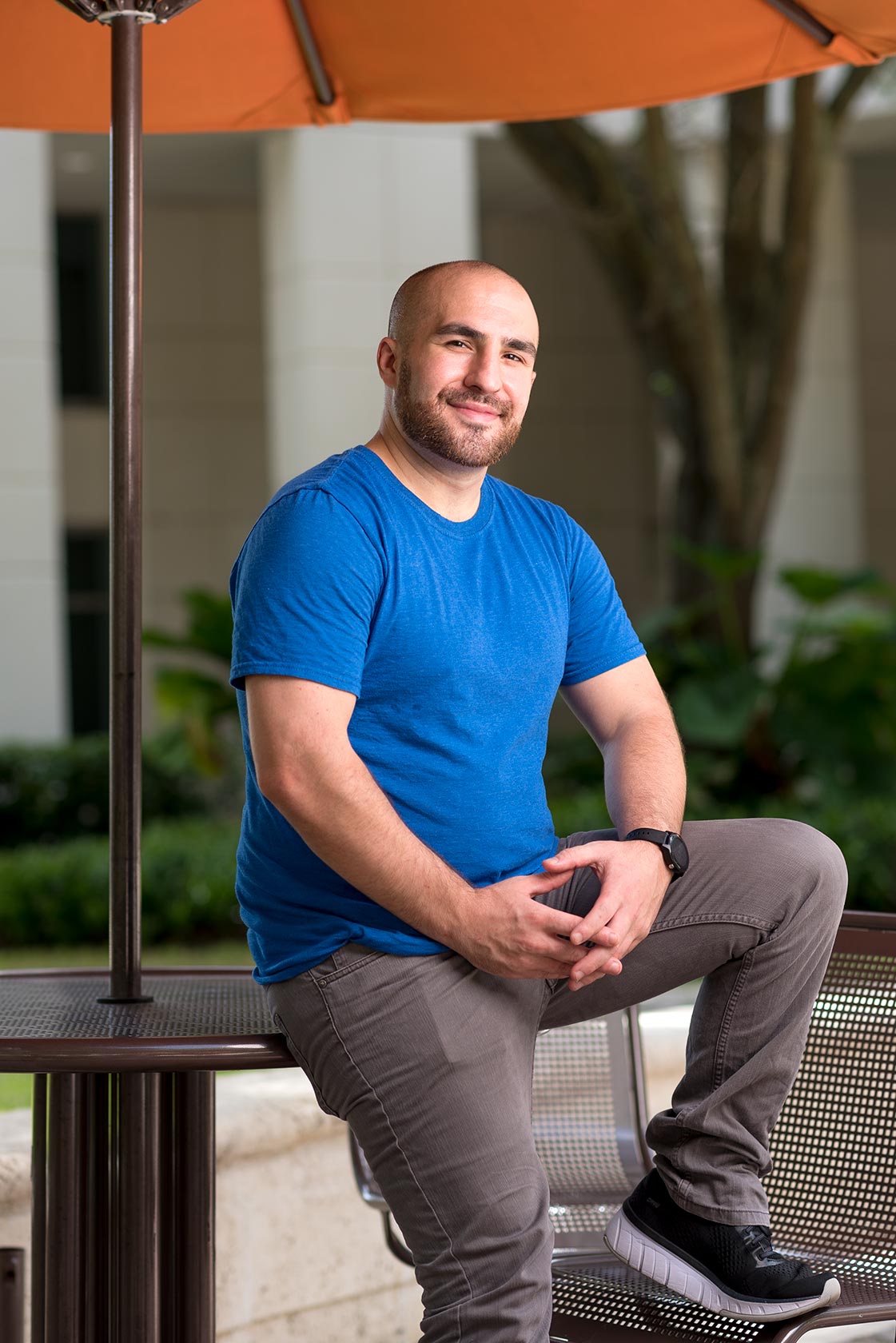
Brandon Rose
Third-year M.D./M.P.H. student
Rose spent the month of April enrolling study participants in the Surveillance Program Assessing Risk and Knowledge of Coronavirus (SPARK-C) initiative. This past spring, as COVID-19 surged in the U.S., Miami-Dade County reached out and asked Erin Kobetz, Ph.D., M.P.H., the UM’s vice provost for research, to implement a testing program to show how prevalent the disease was in the county. The SPARK initiative, an alternative to symptom-based testing, provided a more representative view of the coronavirus in the community.
“At the time, it was the closest thing we could get to a random sample,” Rose said. “If you test people who are sick, that doesn’t give you the same information as if you were to take people out of the population randomly.”
The other SPARK-C captains were students Tomas Delgado, Heather Herman, Maya Lubarsky, Maria Lugo, Brianna Mussman, Varsha Prabhakar, Apoorva Rangan, and Nicole Vecin.
Jared Silberlust
Fourth-year M.D./M.P.H. student
After his clinical rotations were canceled in March, Silberlust looked for alternative ways to care for patients, and he learned that other schools were offering telemedicine opportunities. Silberlust recognized the many complications that could arise from virtual patient care and reached out to Gauri G. Agarwal, M.D., associate dean for clinical curriculum on the Regional Medical Campus, to ask how Miller School students can learn more about telemedicine.
“I wanted the tools to be a better doctor,” Silberlust said.
Silberlust worked on condensing telemedicine resources that Dr. Agarwal shared with him, and he created a presentation and recorded himself giving the lecture.
“Basically, the lecture was ‘Telemedicine 101’ — how to use telemedicine, what the implications are, why medical students should care how to do a remote physical exam, and what website manner is versus bedside manner,” Silberlust said. “These are things that I know I wouldn’t have necessarily thought of if I hadn’t specifically looked into it.”
Silberlust’s lecture was assigned to all third-year students. More than 400 have viewed it, and more than 100 were paired with physicians to gain more telemedicine experience.
“Our results were extremely successful,” he said. “Everyone improved in every single competency we tested, including overall ability, note writing ability, physical exam ability, and communication skills. Now, because it was successful, parts of that curriculum are being incorporated into the clerkship.”
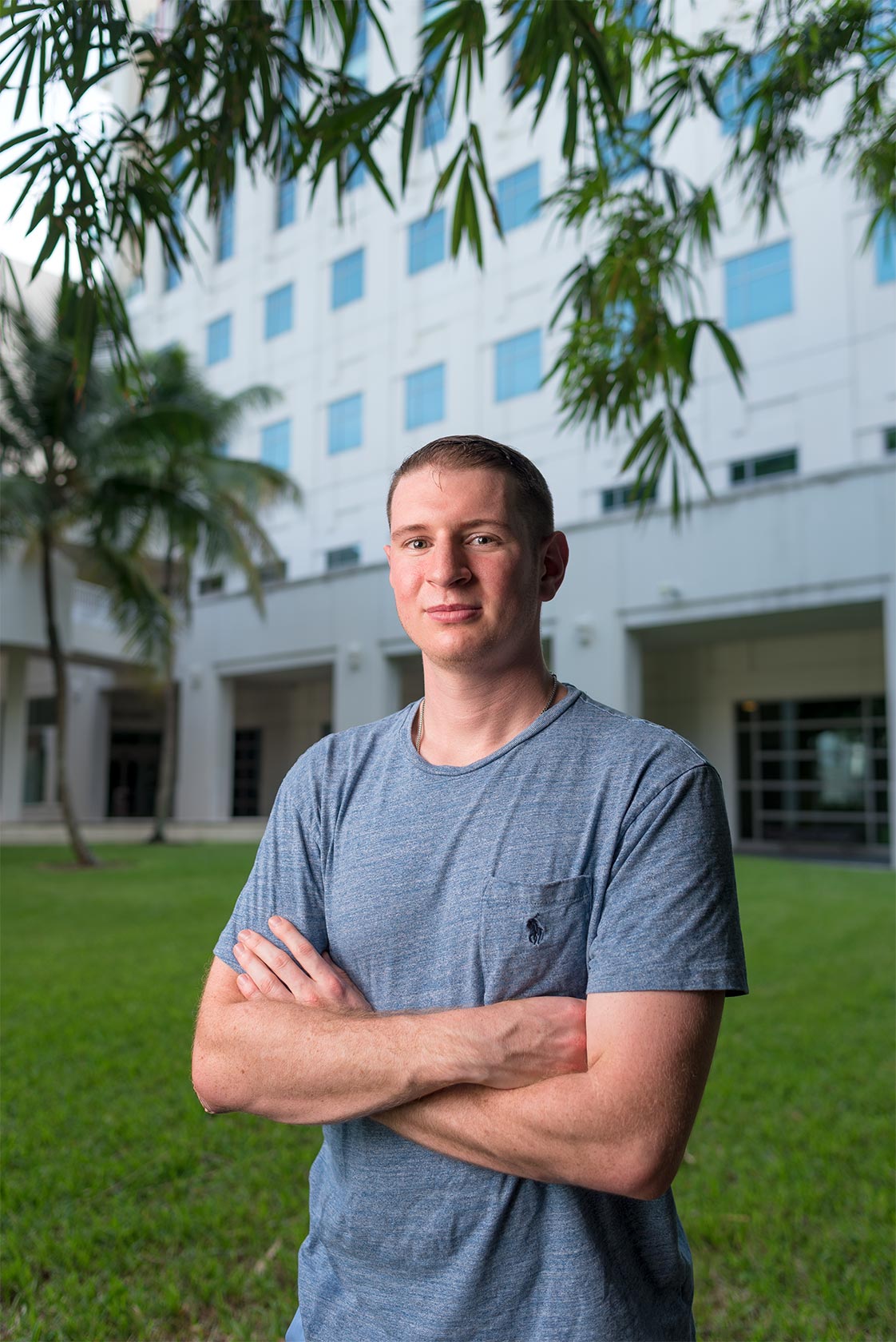
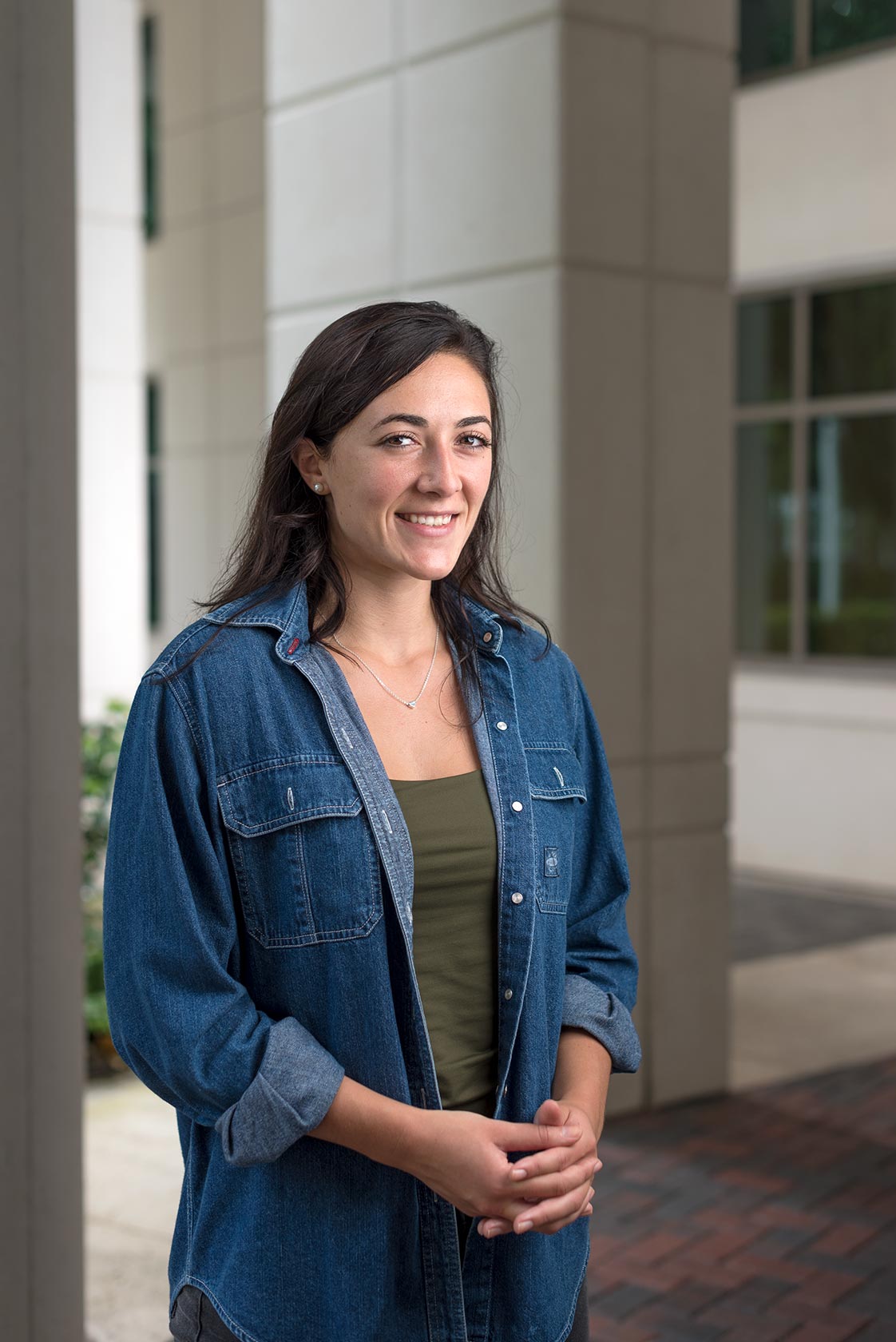
Tara Tardino
Second-year M.D./M.P.H. student
Tardino and other members of the Miller School’s Mitchell Wolfson Sr. Department of Community Service (DOCS) Emergency Preparedness Team helped rally more than 175 students this spring to answer calls about COVID-19 after the Florida Department of Health asked the Miami Poison Control Center, a cooperative venture between the Miller School and Jackson Memorial Hospital, to relieve the department’s call burden and staff a COVID hotline.
As a supervisor, Tardino worked alongside the poison specialists, residents, and pharmacy and nursing students who also volunteered. She took part in daily conference calls with the Department of Health.
“It was exciting,” Tardino said. “There were new developments every day — new changes, new CDC guidelines, new information. It was also a little intimidating because we didn’t know that much. We often didn’t have many answers to give callers, but I like to think we stopped some of the spread, helped ease some people’s worries, and provided some public health education.”![]()


